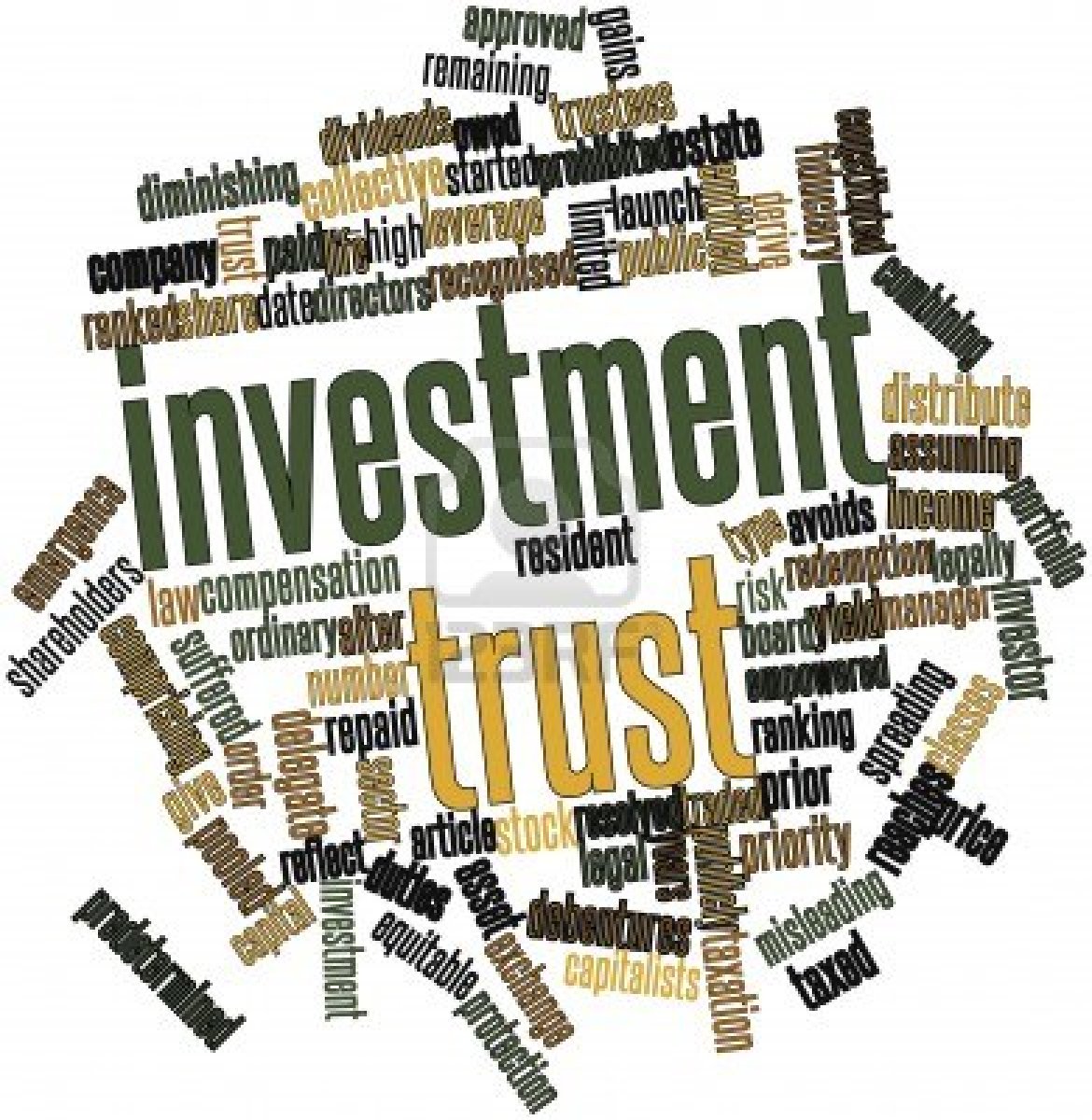Investment Trust Premiums and Discounts
 Unlike a unit trust, whose unit price will depend upon the net asset value of its underlying securities, an investment trust could, in theory, and many times in practice, trade at a price that seems to be unrelated to its net asset value.
Unlike a unit trust, whose unit price will depend upon the net asset value of its underlying securities, an investment trust could, in theory, and many times in practice, trade at a price that seems to be unrelated to its net asset value.
This is because the structure of an investment trust and how it is dealt impact upon its share price.
Net Asset Value
When an investment trust buys shares across a range of securities, it is building up a certain value within itself. The easiest way to consider the net asset value of an investment trust is as the total value placed upon its underlying securities by the market.
Structure and Method of dealing
An investment trust is actually a company that makes its profit by investing its original funds raised by the sale of shares of the investment trust. It is also allowed to borrow funds to invest, which can enhance the value of its underlying investment many times.
However, because its shares are traded on the London Stock Exchange they are subject to the effects of supply and demand as well as market sentiment. So unlike a unit trust, where the price of the units is determined by the actual value of its investments, the price of an investment trust’s shares is determined by the valuation that the market puts on them.
When the market perceives the investment trust to be undervalued it will bid the price up, with the shares trading at a premium to net asset value, and when it perceives it to be overvalued it will push the price lower, with the shares trading at a discount to net asset value.
Buying at a discount, selling at a premium
Some investors actively seek out the shares of investment trust companies that are trading at a discount, believing that they are unfairly undervalued. In some cases this may be true: after all, the fact that a share price is, say, £5 but the value of the investments held, if sold, would be £5.50 would certainly seem to be an anomaly that investors can take advantage of.
However, all companies, whether they invest for profit or make widgets for profit, trade at a discount or premium to their underlying value most times. So whilst buying at a discount to net asset value may seem like a good strategy, and conversely selling when the shares are trading at a premium to net asset value, it is necessary to understand the reasons why the shares may be trading away from the net asset value.
Reasons for trading at discounts and premiums
The reasons that investment trust shares may trade at a discount or premium to the market are, for the most part, equal and opposite.
Sentiment
When the wider market is falling, investors become bearish and sometimes scared of holding any asset. When this happens selling picks up and the supply of shares outweighs the demand for them, which causes the price to fall. When investors are bullish the opposite happens.
Faith in management
When investors believe that bad investment decisions are likely, they will also take the view that this will lead to an erosion of value. When expectations are for a fall in the net asset value, shares will trade at a discount. This is often the case where previous investment history of the company is poor. However, if investors believe that management will grow investments at a fast pace, then shares will be seen as having a greater future worth than the current net asset value and trade up in price accordingly.
Misunderstanding
It may be that the underlying assets held by the investment trust are misunderstood by the market. Perhaps a major investment has fallen sharply because of misperception of the value of an acquisition by the company in which the investment trust has invested. In such a case, the underlying investment would be mis-valued and this would have a knock-on effect on the investment trust itself.
Making good investment trust decisions
Just because an investment trust’s shares are trading below their net asset value does not mean to say they are good value. An investor should look at the reasons behind the discount and evaluate his buying decision accordingly. It is not a simple case of believing that the discount will eventually be reversed. This is also true when considering the sale of investment trust shares – trading at a premium does not necessarily mean they are overvalued.
It should also be noted that returns are affected by the amount of discount or premium as well as the performance of the underlying securities. If the discount narrows during the period an investor holds his shares, then the amount of gain will be larger when he sells. If he has bought at a premium and the premium gest smaller, then his return will also shrink.
In general terms, the larger a discount to net asset value the less liked the investment trust and the larger a premium the higher the regard the market has for the company. Investors who make the best returns from investment trusts are those who learn to identify when market perception of value is wrong.